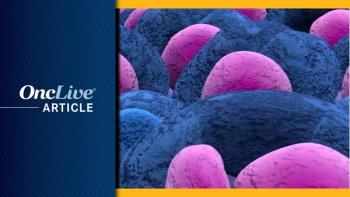
Dr. Giralt on the Rationale of the Karmma-3 trial of Ide-cel in R/R Myeloma

Sergio A. Giralt, MD, discusses the rationale for investigating idecabtagene vicleucel vs standard-of-care regimens in patients with triple-class exposed relapsed/refractory multiple myeloma in the phase 3 Karmma-3 trial.
Sergio A. Giralt, MD, deputy division head, Division of Hematologic Malignancies, Melvin Berlin Family Chair in Multiple Myeloma, Memorial Sloan Kettering Cancer Center, discusses the rationale for investigating idecabtagene vicleucel (ide-cel; Abecma) vs standard-of-care regimens in patients with triple-class exposed relapsed/refractory multiple myeloma in the phase 3 Karmma-3 trial (NCT03651128).
The treatment landscape in multiple myeloma has evolved dramatically in recent years, Giralt begins. With the use of anti-CD38 monoclonal antibodies in combination with proteasome inhibitors and immunomodulatory drugs as frontline treatment or salvage therapy, patients with multiple myeloma are now being exposed to the most active agents in early settings, Giralt says.
In March 2021,
Despite the availability of these CAR T-cell therapies in later-line settings, many patients with multiple myeloma are triple-class exposed and become refractory to those other 3 major drug types within the second or third line of treatment, Giralt emphasizes.
Karmma-3 trial was designed to evaluate ide-cel in patients with multiple myeloma who were triple-class exposed and received 2 to 4 prior lines of treatment, Giralt says. This trial was essential to help understand if ide-cel should be used earlier in the course of the treatment journey for patients who are triple-class exposed and refractory to their last treatment, Giralt concludes.



































